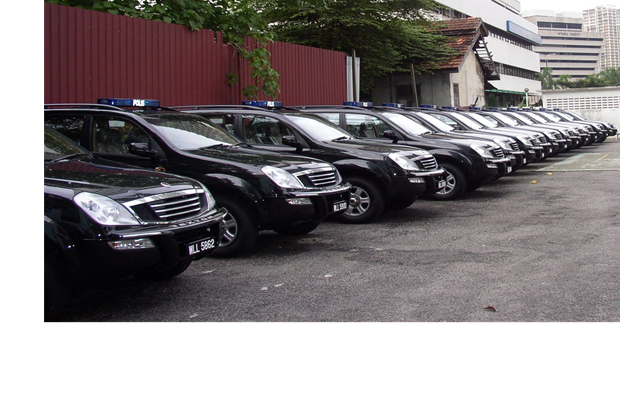By Marcus Bangura, Freetown, Sierra Leone
A national scandal is unfolding as the 2023 Auditor General’s Report lays bare a situation that is both alarming and shocking, costly and deeply demoralising, an expensive betrayal for a nation already in economic ruin. A country comatose in economic shambles, where textbook economists (past and current Bank Governors) have offered very little or no practical solutions, if anything, to resuscitate recovery. The report exposes the unexplained disappearance of hundreds of government assets, including brand new 4×4 SUVs, ambulances, motorcycles, and essential office equipment, all procured with taxpayers’ money
By and large, the Audit uncovers a disturbing pattern of missing documentation and non-existent asset registers, stemming from a widespread collapse inasset tracking, record-keeping, and internal controlsacross key ministries and public institutions. This gross administrative failure has raised serious concerns abouttransparency, oversight, and public accountability. So far,the audit bombshell inside the government asset scandal has left assets untraced, losses unrecorded, and those responsible unpunished, deepening public frustration and eroding trust in state institutions.
The disappearance of entire government fleets without accountability is more than financial lost, and it points to a blatant disregard for public property. This deepening betrayal of trust has sparked public outcry, compelling citizens to ask: Who is truly watching over what belongs to the people? And if the state cannot track its own vehicles and equipment, what else is slipping through the cracks?
The findings are more like a crime investigation than a routine audit in which millions of leones’ worth of state assets are gone, documentation missing, and ministries cannot even show basic proof of ownership or asset registers. This is not just an accounting lapse or poor record‑keeping; it is a damning indictment of how public resources are managed and a sobering reminder of the fragility of accountability in Sierra Leone’s governance. When a government cannot account for its own property, the issue goes far beyond missing vehicles or equipment, it strikes at the very heart of public trust.
From ministries and departments to public agencies, the findings paint a picture of systemic negligence and possible misappropriation. Asset registers, the most basic record‑keeping tool that should track public property, were either missing or grossly incomplete. In some cases, ministries could not even produce delivery notes or receipts to confirm that the assets were ever received. This is not merely an accounting lapse; it is a governance crisis.
The revelations are damning. In the Ministry of Transport and Aviation, auditors report that:
“196 out of 241 vehicles procured… remain unaccounted for. Only 45 Toyota Hilux vehicles were officially received, while the whereabouts of the rest are unknown. Technical evaluations, performance security, ownership documents, licences, and insurance records could not be provided.”
These are not small cars lost in the shuffle. They are expensive 4×4 vehicles purchased for official use with public funds. Their disappearance represents a massive financial and service delivery loss.
The picture is equally obnoxious in the Ministry of Health and Sanitation, where the report states:
“238 out of 286 vehicles in the Western Area were not presented for physical verification. The Ministry lacked an asset register and failed to license or insure the fleet, in violation of Section 11.1 of the Government Vehicle and Fleet Policy, 2020.”
The financial implications are staggering. A single SUV can cost the state tens of thousands of new leones. Add motorcycles, ambulances, generators, and other essential tools, and the cumulative losses run into millions. These are resources that could have been invested in healthcare, education, or rural electrification. Instead, they have vanished into the fog of mismanagement.
Beyond the numbers lies a human cost. When ambulances go missing, patients in rural hospitals are denied life‑saving transport. When motorcycles meant for agricultural extension workers disappear, farmers are left without crucial support. When vehicles for school inspectors cannot be accounted for, oversight in education collapses. Every missing government asset is a gap in service delivery—one that directly hurts the citizens whose taxes funded those purchases.
The Audit Report’s findings should trigger urgent reforms. Every ministry, department, and agency must maintain a transparent, regularly updated asset register, with identification numbers, location details, and user assignments. Annual physical verification should be mandatory, and penalties must follow for unaccounted assets.
The law is clear: public officers entrusted with state property have a fiduciary duty to protect and account for it. Failure to do so can amount to misappropriation or theft. Yet, prosecutions for such offences remain rare, feeding the perception that public property is “nobody’s property” and therefore fair game for misuse.
In other countries, such scandals have led to high‑profile dismissals, criminal charges, and sweeping reforms. Sierra Leone should be no different. The Anti‑Corruption Commission (ACC) must investigate and, where necessary, prosecute. Parliament’s Public Accounts Committee must hold officials accountable, ensuring that Auditor‑General recommendations are implemented, not ignored.
Accountability in asset management is not just a bureaucratic exercise, t is a litmus test of governance. A government that cannot track its own vehicles and equipment is unlikely to manage larger, more complex national resources effectively.
African wisdom says: “A goat owned by the community dies of hunger.” Public property suffers the same fate when no one takes ownership of safeguarding it. Sierra Leone’s taxpayers deserve better, not just to recover the missing assets, but to restore the principle that public resources are a sacred trust.
In the end, the numbers speak for themselves: 196 of 241 vehicles missing in the Ministry of Transport and Aviation, and 238 of 286 vehicles unverified in the Ministry of Health and Sanitation. These figures are not mere statistics, they are symbols of waste, negligence, and weak accountability. Unless these gaps are urgently addressed, the nation risks normalising the disappearance of millions of leones’ worth of public property, eroding not only the state’s resources but also the very trust between the governed and those who governed



Nice post! 1754812332
Many thanks, as we keep the balling rolling in good faith